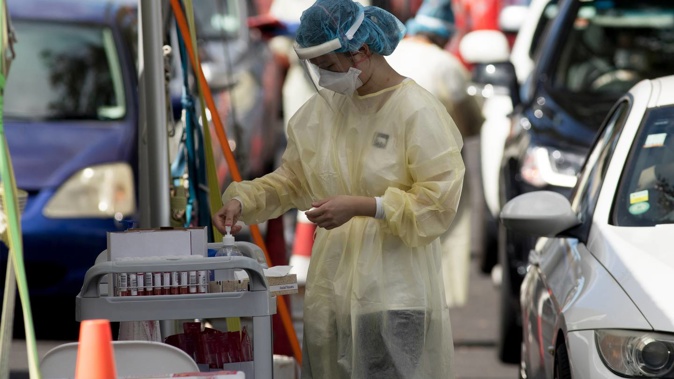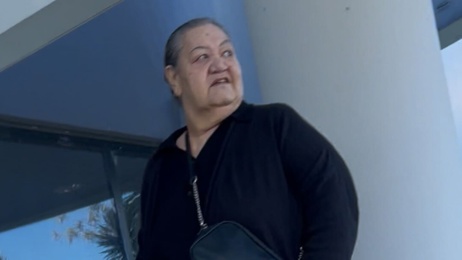
There are 8,531 new community cases of Covid-19 in New Zealand today.
The Ministry of Health has reported a further eleven Covid-related deaths.
There are 635 people in hospital with the virus, nine more than yesterday.
Of those in hospital, 18 are in intensive care units, that's up from 17 in ICU yesterday.
Of those deaths reported today, four were from the Auckland region, two from Wellington region, and one each from Waikato, the Lakes District Health Board area, Hawke's Bay, Whanganui and Canterbury.
Five were women and six were men.
The latest deaths take the total number of publicly reported deaths with Covid-19 to 477, and the seven-day rolling average of reported deaths to 14.
The Ministry of Health released the case numbers and the number of any further deaths in the past 24 hours at 1pm.
Yesterday they confirmed a further 10 Covid-related deaths - taking the reported death toll to 466.
Two people were from the Auckland region, one from Waikato, two from the Lakes DHB area, three from the Wellington region and two from Canterbury.
One person was aged between 10-19, two in their 40s, three in their 70s, three in their 80s, and one over 90.
The deaths reported on Friday included people who had died over the past 15 days.
"This is a very sad time for whānau and friends and our thoughts and condolences are with them," the ministry said in its statement yesterday.
Despite the latest deaths confirmed, the case numbers of the Omicron spread continued to drop yesterday, with 9906 new community cases.
The Auckland outbreak may have peaked – with cases dropping to 1804 -but the city still accounted for 18 per cent of Friday's cases.
Yesterday's figures also revealed there were 626 people in hospital with the virus, including 17 in intensive care.
University of Canterbury professor Michael Plank said the continual decline in case numbers was "good news" but the decline was gradual and there were still relatively high numbers of people in hospital.
"Roughly speaking, our case numbers and hospitalisations have been dropping about 15-20 per cent a week. That has been a fairly consistent pattern and I expect that trend will continue for the next couple of weeks."
Director general of health Dr Ashley Bloomfield said hospitalisations in the northern region were declining, albeit slowly, and there were still quite a number of people on the wards.
They were on the decline but there was a long tail of hospitalisations, he said.
Plank said there would be a long tail in cases, which meant the decline in cases would be slower than the increase of the cases to the peak.
"Although it took us four weeks really to go from very low levels to a peak in cases, it's going to take longer than that to come down and, at some point, it's likely to plateau at a relatively steady level."
Orange light for Easter?
The ministry's figures over the weekend will be factored into decision-making on Thursday which could see New Zealand in orange light territory for Easter.
Last week Prime Minister Jacinda Ardern said New Zealand was not ready to move to orange as the health systems remained under significant pressure.
The next traffic light review would be on April 14.
On the likelihood of New Zealand moving to orange next week, Plank told the Herald that Covid-19 case numbers and hospitalisations were heading in the right direction.
"It's a gradual but consistent decrease in cases and hospitalisations.
"I noticed ICU numbers have dropped quite a bit as well ... which is also good news. I think overall there are signs that that pressure is abating and I think that's promising [for a] potential move to orange."
But University of Auckland Associate Professor Collin Tukuitonga said while the seven-day average was decreasing, case numbers were still hovering around 10,000 and officials shouldn't rush moving New Zealand to orange.
He said second waves of the outbreak seen in the United Kingdom, for example, and the new XE variant should be taken into account when considering a change in settings.
"I would generally be cautious. I just think we're not really over the threat of the pandemic that we can reduce it to orange ... overall, it's probably premature. I would want to see what the numbers look like next week."
University of Otago epidemiologist Professor Michael Baker said there was still a lot of transmission across the country, including in Auckland.
"We are generating new cases, new hospitalisations and probably new deaths every single day so what point do we say we can relax the controls?
"I would say it would be too soon for much of New Zealand, certainly the South Island and many DHBs in the North Island."
Baker said his "big concern" about the country moving to orange was what it would mean for schools.
Under red, face masks are mandatory for school staff and students from Year 4 upwards when indoors. In orange, masks are encouraged but not required when inside at school.
"Only a bit over half the kids have been vaccinated, about 20 per cent have been fully vaccinated now. So the only barrier you've really got is mask-wearing and once you move to orange then it becomes optional.
"Kids have to go to school and it's really vital they do, therefore we have to make schools safe."
Take your Radio, Podcasts and Music with you









